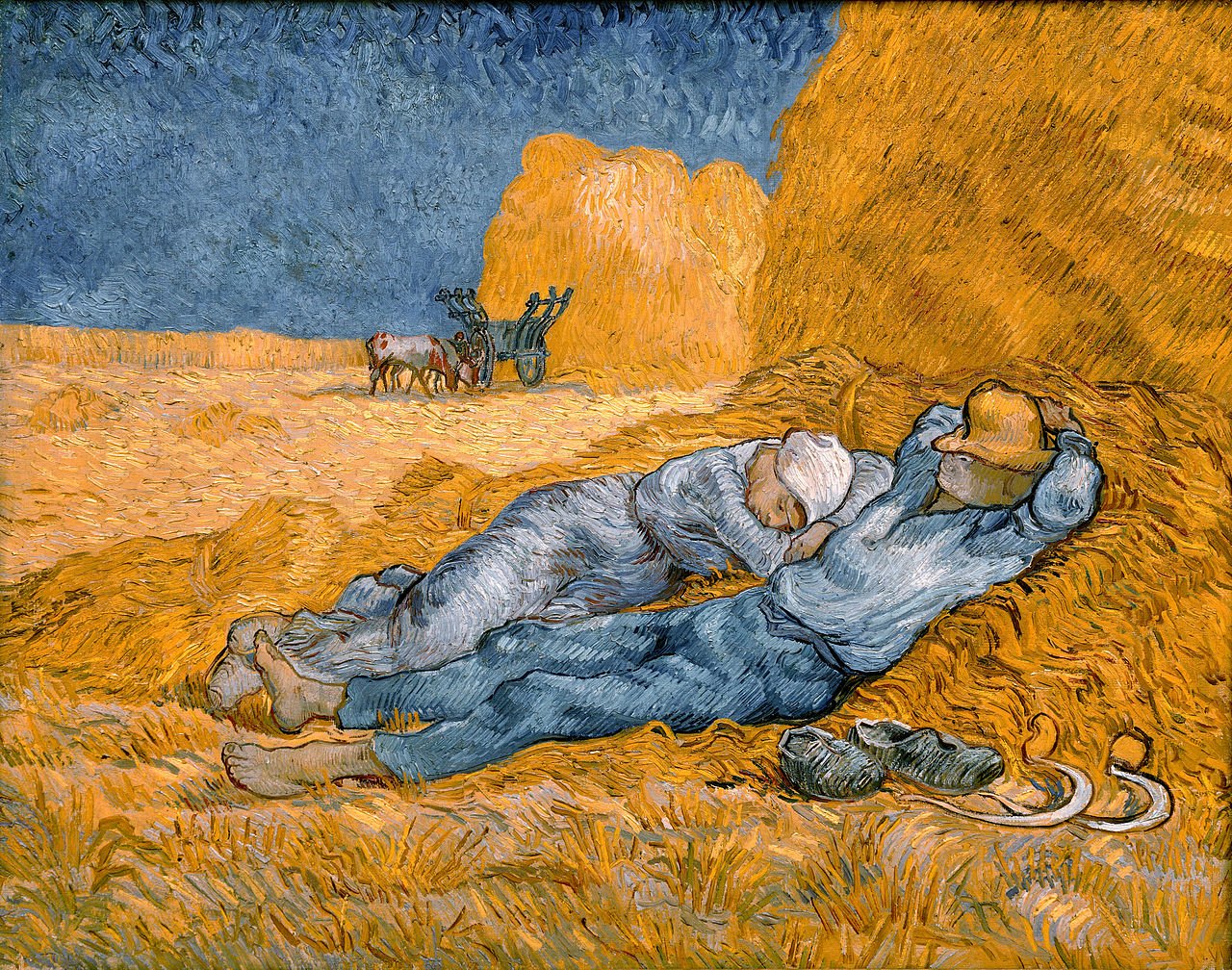Resting Well: Slowing Down & Embracing the Ordinary
Caleb Liebengood ‘24
What does it look like to rest well? The response to this question is proving to be increasingly elusive. At the risk of sounding like a broken record, I will only give a brief reminder of the ways in which many of us often feel crippled by the pace and pressure of modern life, constantly running from place to place, obligation to obligation, task to task. By the time we finally get the chance to slow down, we feel too exhausted or restless to give our attention to the things that we know will feed our souls and give us life.
This restlessness is further exacerbated by the particular tendencies of our time, such as the relentless competition for our attention or the worrying tendency to mobilize around what we hate rather than what we love. I know that for many of us this drive to fill our time with good things comes with genuine desire. But I think in this pursuit for excellence, we run the risk of losing the dynamic of grace. Of giving our attention to the wrong things and making vain attempts in our grasp for control. Many of these ills, while different in form, are not new. After all, there is nothing new under the sun. People have always wrestled with existing in a world where time and resources are finite, where work and pleasure prove insufficient in satisfying our deepest desires. So what are we to do? How can we respond? There is good news. The God who created the universe and knows us better than we know ourselves has given us the tools for flourishing in the Scriptures, preserved in tradition and throughout history. In order to rest well, our approach must change not only in days or moments of rest, but in our general posture toward everyday life. I will suggest two ways that we can do this: slowing down and embracing ordinary, mundane life.
Slowing down
Jesus knew all about our struggles with hurry, stress, and our inability to rest well. That’s why in Matthew 11 he invites us to come, all who are weary and burdened, burned and stressed out, and promises to give us rest. Watch how I do it, he says, and you will learn from me the tools of living freely and lightly amidst the noise of this world. It’s an invitation for us to adopt his lifestyle, to follow the way of Jesus. As John Mark Comer puts it, Jesus’ pace is slow, unhurried, fully present to the moment, and full of love, joy, and peace. Hurry kills our ability to be present to God and each other and to bear fruit in the Spirit. Reading through the Gospels, we see that Jesus regularly took his time going places, was graciously interruptible, was diligent about time in solitude with his Father, and practiced the Sabbath each week. It’s clear what Jesus’ priorities are: space for God and love for His people. And Jesus tells us to follow him. Better yet, He promises to carry us when we fail, because it is inevitable that we will. So how can we do this? First, we adopt his practices. We spend time in solitude with God daily; start by trying 10 minutes in the morning. We read Scripture daily, and we do it slowly; I have found that reading out loud is helpful. The daily office has a great reading plan that takes you through the Psalms, Old Testament, and New Testament passages. We sabbath. We spend one day each week where we let go of our work and our strivings and spend our time by resting and enjoying God and His creation; this is ideal when done in community. We make it a mission that these practices are primary in our life. I understand that life can throw us off track sometimes, but that is only in rare exceptions, not the rule. Second, I want to suggest some practices that have been helpful for me and are particular to our time: Read poetry. Listen to an entire album without skipping any songs. Drive the speed limit. Don’t look at your phone or read the news before spending time in solitude and the Word. Above all I would encourage us to start slowly. And remember, that it is never the practices that save us. Only Jesus. We change our lives as a response to His invitation and good news.
Embracing the ordinary
Slowing down and embracing the ordinary go hand in hand. The poet Abram Van Engen said that slowing down and lingering draws our attention to the most ordinary things in the world and shows us how extraordinary they are, offering us glimpses of beauty and truth along the way. Take for example, the exquisite taste of a perfect orange, the pure joy of roaring laughter, the warmth of the sunlight on your face, or how good it feels to hold someone's hand. All ordinary things right? But things that are easy to miss in our pursuit of excellence, relevance and the spectacular. We often feel that our relationships with God and loved ones have to be spectacular, exciting, powerful. And we should hope for that to some extent. But so much of our life is just ordinary. And praise God for that. After all, love is practiced and joy is learned in everyday, ordinary life. We can be truly restful when we realize that ordinary life is enough. The writer of Ecclesiastes gave us this wisdom when they said that God’s gift to man is that everyone should eat, drink, and take pleasure in their toil, enjoying life with those they love (Eccl 3:13; 9:9). The end of man is to fear God and keep His commandments, and we learn how to do this when we slow down and embrace ordinary life.
The Falls Church Fellows program has made intentional decisions in its structure to help the fellows practice the way of Jesus, notable among them being a weekly Sabbath built into the program. In a city where rest and slowing down are about as likely as snow in the summertime, the fellows program provides a space from which young leaders can follow Christ faithfully and pursue their work with excellence.


